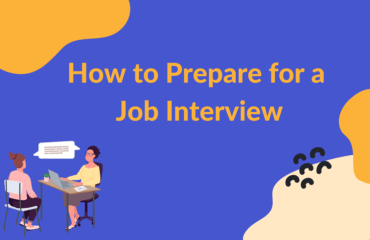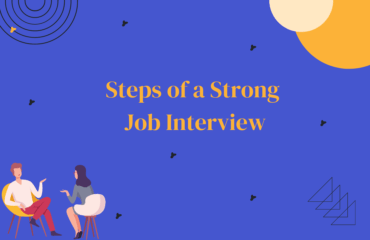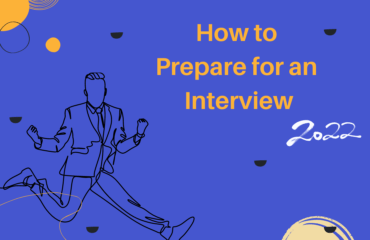Table of Contents
Transferable skills are expertise that can be used in various roles and industries. These are your key to unlocking new job opportunities. So, highlighting relevant transferable skills during an interview is essential to maximize your chances of securing an offer. However, this doesn’t come easy for everyone who applies for a new job.
The national survey of displaced workers found that 57% (20.8 million) of the workers can’t identify their transferable skills with a high degree of confidence. Additionally, 34% (12.4 million) of them can’t provide effective examples of how their skills would apply to another job. If you are one of them, keep reading. This article will discuss what transferable skills are and how you can use them to your advantage.
What are Transferable Skills?
Transferable skills are those competencies that you develop as you progress through employment, education, or training. As the name suggests, these skills can be transferred from one job to another. Because of their versatility, transferable skills are valued by employers regardless of the industry. As such, using them to position your previous work experience can be beneficial for your application, even if you don’t necessarily have related industry experience.
For instance, you were an entrepreneur who is now looking to secure a business development executive role. With no relevant experience, it can be easy to think that you need to start from scratch and develop relevant skills to support your career transition. But this is not necessarily the case. Highlighting your ability to build a business from scratch, generate revenue, and negotiate with clients can go a long way. It helps you convince prospective employers that you are a good fit for the job. Even with limited work experience, building your case around your transferable skills will boost your chances of success.
Why are Transferable Skills Important?
Studying or training can take you on a path towards acquiring hard or technical skills. On the other hand, soft skills are more difficult to develop as they need to be practiced over time in real-life situations. Due to its adaptability, the importance being placed on soft skills has increased. According to Pew Research Center, jobs requiring soft skills grew by 83% over the last 35 years.
Most of the soft skills are essential across diverse industries and jobs, which is why they are widely referred to as transferrable. As a career changer, a strong set of transferable skills will enable you to transition from one career field to another, increasing your employability. Furthermore, they complement and make technical skills more valuable in any job function. For example, a salesperson with an unrivaled knowledge of their product and market will have little success if they lack the interpersonal skills needed to close deals and retain clients.
Top Transferable Skills Companies Look For
1) Soft Skills
Soft skills are traits developed through life or work experiences. These are positive attributes that are invaluable in practically any role. So, by definition, soft skills are more transferable to different work functions and industries. Here are some of them.
a) Problem-solving
This is your ability to identify, comprehend, and assess the problem’s root cause, determine alternatives, and develop fit-for-purpose solutions. With the ongoing challenges that businesses are facing due to COVID-19, it’s no doubt that most companies in any industry require someone with the capacity to help them address their challenges. In fact, experts agree that this is one of the essential skills an employee should have. So, if you’ve helped your previous employer solve a business problem, use that as a selling point in your interview.
b) Communication
According to the Graduate Management Admission Council™ (GMAC™)’s 2020 survey results, 81% of corporate recruiters identify communication and interpersonal skills as critical hiring qualifications. With the abrupt changes in communication due to COVID-19, this will remain the case for 2022. Your ability to effectively work and communicate with a broad range of people through various communication channels has become more important than ever. If there was a time in your previous employment when you facilitated negotiation and closed a profitable deal, make sure to mention it in your interview.
c) Leadership
To maximize a business’ success, companies require effective leaders who are capable of supporting and encouraging their staff to achieve business goals. However, the 2021 Global Leadership Forecast found that only 11% of surveyed organizations have a strong leadership bench. This goes to show that leadership skills are in demand by most companies around the world. Have you improved your team’s performance, built a department from scratch, or managed business initiatives? Highlight them in your interview to demonstrate how effective of a leader you are.
d) Time Management
Time management is important for busy companies to prioritize all work tasks and achieve organizational goals faster. Think of an instance when you had to manage multiple responsibilities or projects under tight deadlines. Did you complete them on time? Communicate these to your interviewer to demonstrate your time management skills.
e) Teamwork
Most employers look for candidates who are team players. Your ability to work well with clients, colleagues, managers, and other people in the workplace is essential for making positive contributions to any organization. If you share a time when you worked closely with a team to improve a process that increased organizational efficiency, you will likely impress the interviewer with your teamwork skills.
f) Adaptability
In response to the changing customer behaviors brought by the pandemic, pivots in business have now become more common. The survey from GetApp proved this to be true, where 92% of their respondents reported pivoting in at least one way. Most of this transformation is digital technology-driven. In such a case, companies need an employee who has the ability to learn new skills and be creative and flexible in the face of new situations. Hence, demonstrating that you can adapt to change while maintaining a positive attitude will be beneficial for your interview.
g) Attention to Detail
While coding mistakes may seem harmless, the tiniest errors can cost companies millions and damage their reputation. For instance, bad data cost businesses in the US a staggering $3.1 trillion per year. An Experian survey found that human error is among the biggest contributors to a lack of data accuracy. So, having employees with strong attention to detail is crucial for businesses in any industry. During your interview, make sure to highlight your ability to pay attention to every detail in an assignment by identifying and correcting errors.
h) Relationship-building
According to Gallup, good work relationships make workplaces more enjoyable and productive. It is also linked to better customer engagement and profitability. For these reasons, employers look for professionals who have the capability to form positive relationships, contribute to a team, and establish mutually beneficial agreements between parties. If you’ve established good customer relationships that contributed to repeat business, don’t forget to mention that in your job interview.
i) Decision-making
Good decision-making skills allow you to choose the best possible solution between two or more alternatives, resulting in optimal business outcomes. This is why employers value candidates who have the ability to be decisive and the confidence to make a smart choice. In fact, the share of jobs requiring employees to make good decisions increased from 6% in 1964 to 34% in 2018. To communicate your decision-making abilities in a job interview, you may cite an example of when you conducted a comparative analysis of proposals from multiple vendors and selected the best one to lead a campaign.
j) Analytical thinking and innovation
The World Economic Forum’s survey revealed that 84% of employers accelerated the digitalization of their work processes as part of their planned business adaptation to the “new normal”. This is increasing the demand for jobs that require analytical thinking and innovation skills. Companies are now on the lookout for candidates who can improve processes and find a faster route to work.
2) Hard Skills
Technical or hard skills are knowledge of specific subjects, procedures, and technology necessary to perform a particular job function. They are useful for certain functions or fields. However, some are not specific to only one type of work and can be transferred to any job function or industry. Let’s take a look at the list below.
a) Project Management
The practice of management has now expanded to industries that were traditionally less project-oriented such as healthcare, publishing, and professional services. As more organizations and industries rely on technologies and the projects needed to support them, jobs requiring project management skills have dramatically increased since at least 2008. Being both in-demand and transferrable, project management is one of the top hard skills to have.
b) Operations Management
Most companies require effective implementation of the right processes and practices to ensure seamless and efficient operation. Every business needs it, whether large or small, regardless of industry. So, if you consider yourself adept in operations management, emphasize how you’ve helped your previous employer improve their organizational processes in your interview. You’ll have plus points if you’re familiar with the application of Lean Six Sigma, which is useful for boosting work processes while eliminating wasteful efforts.
c) Software Engineering
The restriction measures brought by the pandemic have reinforced the importance of digital infrastructures. In fact, a new survey found that the responses to COVID-19 have rapidly sped up the businesses’ adoption of digital technologies by several years. In turn, the demand for candidates with software engineering skills is increasing with no signs of slowing down. According to Forbes, software engineering employment is expected to increase by 22% by 2029. If you know programming languages like Java, JavaScript, Python, PHP, and C++, these could be beneficial for your application.
d) Digital Marketing
With nearly $800B of products and services sold online in the US alone in 2020, digital channels have inarguably proved their importance to any business. Many consumers are now shifting from brick and mortar to digital platforms for their day-to-day needs. In turn, companies are now on the lookout for digital marketers, as evidenced by LinkedIn data on top coveted marketing skills and jobs through the COVID-19 pandemic. If you are knowledgeable of the following, you are more likely to capture the interviewer’s interest.
- Search Engine Optimization (SEO)
- Search Engine Marketing (SEM)
- E-commerce marketing
- Social media marketing
- Display ads
- Email marketing
- Copywriting
e) Sales
Unlike any other skill, sales skills are the holy grail of generating direct revenue for any business. Without a doubt, sales skills would translate well to any industry. While sales hiring declined sharply during the pandemic, it is expected to increase in 2022 as companies look to get their sales force back up to pre-COVID operations numbers. If you have unrivaled sales skills, now is your time to shine on your interview. Make sure to back up your claim with facts and figures to impress the interviewer.
Tips and Tricks for Talking About your Transferable Skills in an Interview
During a job interview, the interviewer may ask you competency-based questions to evaluate what skills you can bring to the table. This is an opportunity to highlight your transferable skills using real-life situations. Below are some of the tips and tricks on how you can use these skills to your advantage.
a) Understand what transferable skills you have
You can’t speak what you don’t know. Similarly, you won’t be able to communicate your competencies if you are not aware of what you’ve got. So, assessing yourself for transferrable skills is an essential step in job interview preparation. Recognizing your own skills will allow you to use them as selling points effectively. If you’re unsure how to identify which skills you have, below are some of the questions you can ask yourself.
- Have you led a complex project?
- Did you help the management solve a problem?
- Was there a time when you had to manage a challenging situation with a colleague or customer?
- Have you contributed to increasing your previous employer’s bottom line?
- Was there a time when you worked successfully in a team environment?
- Has there been an instance when you had to make a difficult decision?
b) Consider the key requirements of your target jobs
Not all transferable skills are equal. They are only beneficial for your application if aligned with the requirements of your potential employer and target job. Hence, considering the qualifications required according to the job description is imperative. For example, talking about a product you developed is cool if you’re applying for a product management role. However, an interviewer may not find it impressive if you’re aiming for a customer support position.
During your job interview preparation, invest time reading through the job post. This can give you an idea of an interviewer’s possible questions. We recommend paying attention to the qualifications section and identifying the required skills. Then, attempt to correlate them with the competencies you’ve developed from your previous jobs. The more you can align your expertise with the job requirements, the more you can convince the employer that you are a great fit for the position.
c) Frame answers using the STAR format
Interviewers appreciate clear, focused answers. That being the case, we recommend using the STAR method for interviews. This method is easy to understand and implement. In addition, it allows you to provide structured answers and prove your point while keeping your answers from being too long. Here’s what STAR means.
- Situation – What was the situation or your objective?
- Task – What task did you need to accomplish?
- Action – What were the actions taken or skills you used?
- Result – How did your effort benefit the company?
Below is an example of how you can use the STAR technique in your answers.
“The last company I worked with had a yearly brand study, which an external media agency executed. However, the research was limited to basic KPIs and only covered 15 markets (Situation). As a Market Research Analyst, I had to utilize my analytical and problem-solving skills to look for ways to improve it and make it more actionable for different markets (Task). I collaborated with internal users and strategic partners to optimize research methodologies, revamp analytical tools, and introduce new capabilities for supporting insights (Action). As a result, we were able to expand market research coverage from 15 to 30 markets for 12 key watch brands (Result).”
Additionally, we recommend phrasing your transferrable skills in line with the employer’s language and needs. This will allow you to frame the conversation around vocabulary that is familiar to the interviewer, making your answers more relatable and easier to understand. Research the company and read through the job description for you to become familiar with your target employer’s language. Then, use the same to explain how your experience and transferrable skills fit the job.
When transitioning to a new job, taking the time to identify your transferable skills and then using them as your selling points can help you stand out from the competition. As a rule of thumb, always think of the skills that underlie a question you are asked. In addition, use real-life examples of the skills outlined in the job description. If you need help with job interview preparation, we’re just a message away.
References
2) CareerHigher, 2021. 7 High-Income Technical Skills to Learn in 2022. Available at: https://www.careerhigher.co/career-advice/high-income-technical-skills-to-learn-in-2022-125194/
3) CareerHigher, 2021. How to Answer Competency-Based Interview Questions. Available at: https://www.careerhigher.co/career-advice/answering-competency-based-interview-questions-124224/
4) CareerHigher, 2021. How to Prepare for an Interview in 2021. Available at:https://www.careerhigher.co/career-advice/how-to-prepare-for-an-interview-in-2021-1523/
5) PMI, 2017. Job Growth and Talent Gap. Available at: https://www.pmi.org/-/media/pmi/documents/public/pdf/learning/job-growth-report.pdf
6) Mckinsey & Company, 2020. How COVID-19 has pushed companies over the technology tipping point—and transformed business forever. Available at: https://www.mckinsey.com/business-functions/strategy-and-corporate-finance/our-insights/how-covid- 19-has-pushed-companies-over-the-technology-tipping-point-and-transformed-business-forever
7) GetApp, 2020. America's Small Businesses Have Reinvented Themselves—And It's Paying Off. Available at: https://www.getapp.com/resources/business-model-change/
8) Harvard Business Review, 2016. Bad Data Costs the U.S. $3 Trillion Per Year. Available at: https://hbr.org/2016/09/bad-data-costs-the-u-s-3-trillion-per-year
9) Experian, 2021. 2019 Global data management research. Available at: https://www.experian.co.uk/assets/data-quality/experian-global-data-management-report-jan-2019.pdf
10) World Economic Forum, 2021. This is the skill employers want most. Available at: https://www.weforum.org/agenda/2021/06/skills-work-working-education-cognitive-decision-making/
11) PwC, 2020. Upskilling: Building confidence in an uncertain world. Available at: https://www.pwc.com/gx/en/ceo-survey/2020/trends/pwc-talent-trends-2020.pdf
12) mba.com, 2020. Employers Still Seek Communication Skills in New Hires. Available at: https://www.mba.com/information-and-news/research-and-data/employers-seek-communications-skills LinkedIn, 2021. Recent Leadership Data and Statistics that You Should Know. Available at: https://www.linkedin.com/pulse/recent-leadership-data-statistics-you-should-know-johnson/
13) LinkedIn, 2021. Marketing’s Evolution: A Look at the Jobs and Training Skills in Highest Demand. Available at: https://www.linkedin.com/business/marketing/blog/linkedin-ads/top-in-demand-marketing-jobs-training-skills
14) Forbes, 2020. Here’s How To Find A New Job: Survey Says Transferrable Skills Are A Life Raft In The COVID Economy. Available at: https://www.forbes.com/sites/chriswestfall/2020/06/08/find-new-job-survey-transferrable-skills-career-coaching-covid-economy/?sh=170327d85750
15) Forbes, 2021. Seven Important Software Engineering Skills In 2021. Available at: https://www.forbes.com/sites/forbestechcouncil/2021/06/28/seven-important-software-engineering-skills-in-2021/?sh=37be44fd5a31
16) DigitalCommerce360, 2020. US ecommerce grows 32.4% in 2020. Available at: https://www.digitalcommerce360.com/article/us-ecommerce-sales/
17) Pew Research Center, 2016. 3Key findings about the American workforce and the changing job market. Available at: https://www.pewresearch.org/fact-tank/2016/10/06/key-findings-about-the-american-workforce-and-the-changing-job-market/
18) Salesforce, 2021. 3 Predictions for the Most Popular Sales Jobs in 2022. Available at: https://www.salesforcesearch.com/blog/3-predictions-for-the-most-popular-sales-jobs-in-2022/











